
Jon Bellion is quite fixated on the feel of the green New Zealand grass on his bare feet. He remarks with a chuckle that it feels exactly as he’d imagined it would. To set the scene, we’re all perched - along with a photography team - on a small patch of grass overlooking the picturesque Muriwai Beach in West Auckland, about an hour’s drive from where Bellion will play his first-ever show in New Zealand tonight, which is entirely sold out.
A few hours before our expedition to Muriwai, Bellion is nervously laughing over lunch, apologising for his wordiness, and explaining that this interview is just one of two for the entire 'Glory Sound Prep' album cycle - a deliberate decision he made after realising during the gruelling press run for his debut album 'The Human Condition' that interviews brought him no happiness. Reflecting on the misery he felt during that time of peak 'success', Bellion realised that success was something he needed to redefine for himself, rather than something defined by the industry around him, which so often focuses on online follower counts and streaming statistics.

Click here to order a CDM x Jon Bellion zine (i.e. a mini-magazine featuring photos + quotes from this cover-story).
But Bellion’s immense fixation on the real isn’t limited to just the feeling of New Zealand grass alone though, it’s an integral part of why Bellion’s success right now is so rooted in the real world. Though his streaming and online accolades are undeniably impressive - he boasts over 7 million monthly listeners on Spotify, his breakout 2016 single 'All Time Low' has gained over 419 million Spotify streams and counting, plus he happens to have five songs in the Top 40 of US radio through his co-writing of hits with Camila Cabello, Halsey, and more - it's clear when talking to Bellion about his career, that what matters to him most above everything else is real fans coming to the shows and fully immersing themselves into his world.
That world was brought to life through 'Glory Sound Prep', Bellion's sophomore album released in late 2018, which he toured for exactly a year following. The tour has sold over 150,000 tickets globally, an enormous achievement for an artist who used the album as a way to announce his rejection of participation in what is expected of musicians in today's society ("This whole album was just a giant risk of saying, 'I'm going to do literally zero things that I don't want to - if I don't want to do it, I'm not doing it," says Bellion). That defiant attitude might sound harsh, but in a world where 73% of independent musicians struggle with mental illness issues according to a recent study, it's clear that few in the industry are prioritising the wellbeing of artists - an issue which Bellion hopes to be able to help change with 'Glory Sound Prep' acting as a blueprint; teaching artists that they can play by their own rules, and carve their own paths, and still find their own success.
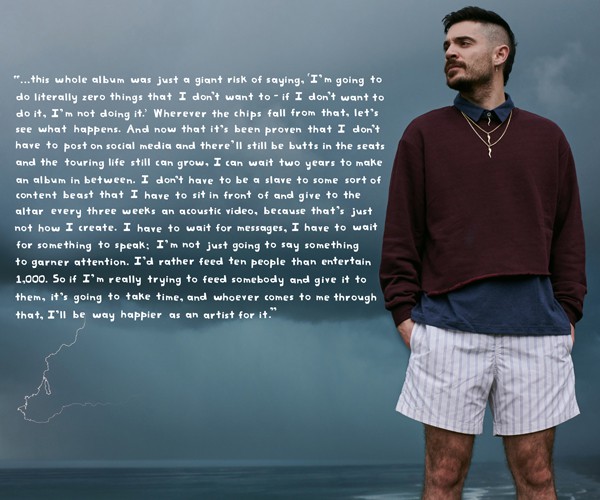
The puppy Pokémon, Growlithe, is friendly and fiercely loyal, and can be depended on as a fearless defender against larger and stronger enemies. Equally beloved as the mohawked canine is Bellion, no longer an underdog, but a trailblazing hub of creative energy whose reputation as an artist who refuses to bow down to music industry norms (along with the rest of his Visionary Music Group family) precedes him. Needless to say, the resemblance between Bellion and the humble Growlithe is uncanny. Bellion's special abilities put him in his own lane, namely his determination and musical vision for himself, which goes far beyond the music alone. It's a space for storytelling, where he can share his own story ('JT'), reflect on the dangers of our online personas ('The Internet'), but also a place where he can continually push his musicianship; never settling for a certain sound ("Was never focused on gettin' bigger, just gettin' better," he raps on 'Let's Begin').
Each soundscape on the ten songs of the genre-spanning 'Glory Sound Prep' was crafted with meticulous thought - from creating a micro-mixtape within 'Adult Swim' hosted by 'Dragon Ball Z' voice actor Christopher Sabat (Bellion also notably lent his voice to the 'Dragon Ball Super: Broly' movie last year), to the vulnerable 'Stupid Deep' which is driven by soft piano chords throughout, and sees Bellion's sister lend her vocals in the background, to the "Irish bar, bunch of grown-ass men getting emotional about their mothers" chanting in 'Mah's Joint' which was recorded with his best friends at a mansion in Pennsylvania.
Launching the 'Glory Sound Prep' album last year began with a short animated trailer - a taster of what fans can expect from the upcoming animated TV show set on a planet called Opus. The planet is run solely by musical energy, with 'Glory Sound Prep' existing as a school on the planet, with the main character joining the hunt for the 'glory sound'. With the pilot already being worked on, Bellion is enthused about the project and its future - which used the entire 'Glory Sound Prep' tour as a promotional run, with each show ending with a teaser of what's to come. He's eager to discuss the new project, as well his other endeavours within music, which have seen him co-write and co-produce radio hits with the likes of Halsey ('Graveyard'), Camila Cabello ('Shameless' and 'Liar'), Lauv ('Drugs & The Internet'), and Maroon 5 ('Memories') in recent times. He approaches these projects with the attitude of emulating Pharrell, Quincy Jones, or Hans Zimmer, solely wanting to help the artist to execute their own vision - much as his main goal with his sound is to execute his own vision.
Coup De Main spoke with Jon Bellion on November 10th, exactly one year after the release of 'Glory Sound Prep', and the day of the final day of the tour, to reflect upon the album cycle, the music industry, social media, and much more...

COUP DE MAIN: It's cool that tonight's show in Auckland is the end of the touring cycle for your 'Glory Sound Prep' album. Are you excited that you finally made it down to this part of the world?
JON BELLION: Without a doubt, and to see the fans come out in droves and sell out the shows, it is very humbling. I never really knew what that meant until you start to go across the world and see people speak different languages or from different places. They should have no business liking a kid from New York and knowing every lyric; but they do, and it's so amazing.
CDM: How have you found the 'Glory Sound Prep' live shows? Has it changed the way you think about the album?
JON: Records like 'Conversations With My Wife', where it's envisioning very large stadiums, that's kind of where a lot of the sonics came from, so in my mind it's funny that the album was made for that and for it to actually work out for us to play arenas and then apply it to that, it's been ridiculous. Seeing the way people reacted to the songs live encouraged me even more for the next material, so it's been really encouraging.
CDM: When you're working on a record in a recording studio are you thinking about how it's going to exist in a live space? I feel like some of the videos I've watched, they kind of have a different feel to them, like they kind of look like two different things.
JON: Yeah, in the beginning of my career not so much. And then as I got older, I understand that we'll probably be in front of 4,000 to 10,000 people, so I think, 'How will this go off?', and that is a factor that plays in. If certain elements are there though, they'll be able to be reworked, and all I need is the building blocks. A lot of 'Glory Sound Prep' was building blocks of the possibilities of where we could take things, moving very musically and very all over the place, so it's freed me for the live show to do different versions of songs all throughout the set.
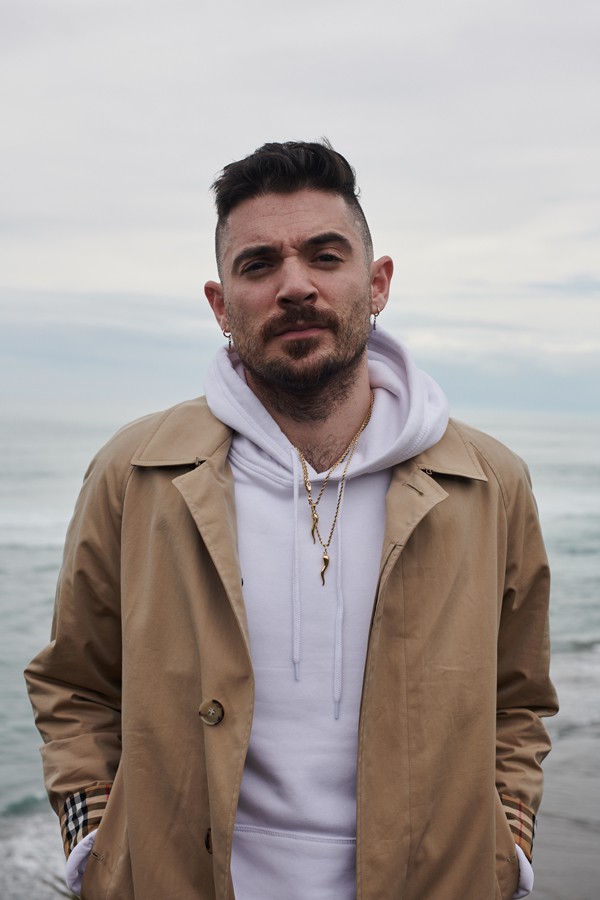
CDM: And working with your Beautiful Mind band, it looks like such a fun show to put together and play every night.
JON: Of course. Growing up with those guys and going to college with those guys - and there's been a couple of new guys that were added - it's been absolutely amazing because that's the fun part, putting it together and creating the show as a brand new thing, a brand new product, aside from the music.
CDM: How many people are in your band?
JON: It's seven people.
CDM: Is is important to you to add that level of energy through the band?
JON: It is. Anybody who reads this that's been to a show will know that most of the show is freestyle. There's a lot of free-form, like, 'Where's it going to go?' We like to really bring home that we look up to The Roots, and we love the Free Nationals. There's a lot of bands that we listen to and that we'll take pieces from or whatever. It's important for us that the instruments are plugged in and it is a group of guys playing together to create a band atmosphere.
CDM: There's something cool about a live show being imperfect and there being the chance that something could go wrong!
JON: Oh my gosh, early on in my career, I would mess something up and be like, 'That's it! People are going to hate this, it's gonna be the worst show.' Then you start to realise that when a mic goes out, you have to switch to acoustic, or if something goes wrong, the crowd loves when you have to freestyle or do something else. Those have been some of the best moments.
CDM: And a lot of the time people don't even notice! Some musicians will tell me something went badly and I didn't even notice.
JON: I had no idea, yeah, 100%.
CDM: For you, looking back on 'Glory Sound Prep', which came out a year ago to this day, how do you think you've grown since then?
JON: Oh, man, it's been the most freeing body of work in my career ever. A lot of times when I was in the studio prior, it would be like, 'Wow, I really want to do X, but I know X might not apply to X, Y, or Z, so I might hold back or not be as indulgent.' But this album was really kind of like me making sure people didn't expect one thing from me. I think the fact that we sold double the tickets from the last album, shows that the fanbase is willing to grow and to receive my new ideas if I want to move on from something. So it's been the most rewarding process that I've ever gone through on any album ever.
CDM: Most people don't want to hear the same album over and over again from an artist.
JON: No, but they pretend as though they do, and they will complain. But really, this album was inspired by [Bob] Dylan going electric and The Beatles album 'Sgt. Pepper's Lonely Hearts Club Band'. Or even the 'Pet Sounds' documentary of The Beach Boys making surfer music and then going to 'Pet Sounds'. Every artist worth listening to and their discography ten years after the fact, has always made some sort of pivot or some sort of announcement that says, 'You cannot expect the same thing from me, I have to grow. And I hope you come with me. But for my sanity and my mental safety, I have to do that.' And the fact that they came along with me, it's just incredible.

CDM: You've said it's important to you for your fans to sit with the album and let it digest. Why was that important to you, as opposed to going on a big press tour and explaining what every song is about?
JON: If you see history repeating itself constantly, it's out of the gate. Brand new albums that take creative left turns from what people expect, are always received with indifference or anger or repulse because it's, 'I had my first kiss to this and I want it to happen again,' but they don't realise that it's a mixture of their age and their life. If an artist was to make the same record every single time, then they start to say he makes the same record every time, and then when he changes it up and does something different it's, 'Wow, we wanted what we know you for.' Honestly, I just came to the conclusion after having a conversation with my wife and with people around me, that I have to do what's going to keep me mentally sane, and whatever comes from that, it is what it is. So then it hit me, that this whole album was just a giant risk of saying, 'I'm going to do literally zero things that I don't want to - if I don't want to do it, I'm not doing it.' Wherever the chips fall from that, let's see what happens. And now that it's been proven that I don't have to post on social media and there'll still be butts in the seats and the touring life still can grow, I can wait two years to make an album in between. I don't have to be a slave to some sort of content beast that I have to sit in front of and give to the altar every three weeks an acoustic video, because that's just not how I create. I have to wait for messages, I have to wait for something to speak; I'm not just going to say something to garner attention. I'd rather feed ten people than entertain 1,000. So if I'm really trying to feed somebody and give it to them, it's going to take time, and whoever comes to me through that, I'll be way happier as an artist for it.
CDM: Kind of tying in with sitting with an album and letting it digest, in the musical society we live in today, we're taught to be fast consumers and fickle with our affection. Do you think that there's a need to slow down, in a general sense?
JON: Totally, I think that was the whole album process. It's me fighting immediate satisfaction as opposed to quality that lasts over time, and that takes some sort of stance. The stance is me being in silence, not promoting the album. People were like, 'I want to hear him talk about it,' but the art is for you to digest and for you to listen to and really take in. That was the entire concept - like, this is the first interview I've done for this album <laughs> besides really ridiculously surface and possibly corny radio stuff that I've done. This is the first thing besides the interview with Rob Markman [for Genius] who is a very good friend of mine. This is the first interview, a year later. I'm not going to explain myself, when people in the midst of it are going, 'He disappeared.' Maybe, me disappearing is the equivalent of me being happy and not giving myself to the world. Why is there a pattern that artists are depressed? Why is there a pattern where with every single artist - the SZA's, the Lauv's, the Mac Miller's, the Jimi Hendrix's, the Janis Joplin's; you name it - there is something going on, where this industry is requiring more than what you're getting back.
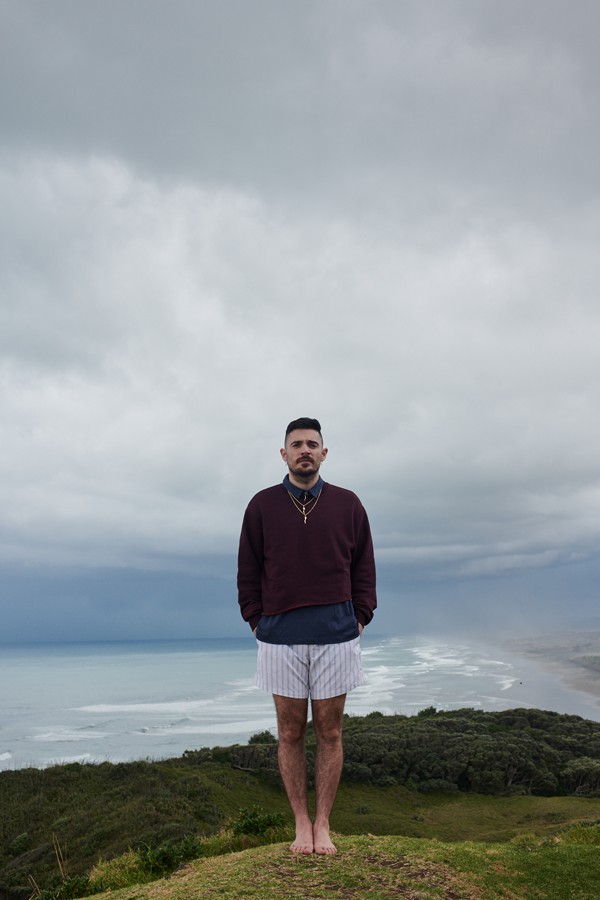
CDM: In the chorus of 'Conversations With My Wife', you sing, "Will you love me when my phone turns off? / I don't want to be some digital Jesus / No more followers, we'll both get lost / When it's me and you inside real life." In the world we live in today, our online lives and our real lives seem to be so intertwined that they're nearly considered the same thing, which is quite frightening. It's so damaging for self-worth as well, especially as an artist, I can imagine that social media both inflates and deflates you. Are you quite cautious about the way you use social media?
JON: To me, it's like the frog in hot water theory where you drop a frog in cold water and slowly make it hot - the frog doesn't realise because it's cold-blooded, that its skin is peeling off. If you drop a frog into boiling hot water, he'll know immediately to get out. When you start to fall into the social media trap of comparison, comparison is the thief of joy; that's a fact. If you're constantly comparing your career and yourself to others, you have to be wary of it. For me, that song, I think it's even more prevalent today. Think about the press runs that people are going on and what they're saying, and what Artist X is saying to get people to follow them. We're literally trying to get people to follow, and that's scary, and it's contradictory. You get sociopathic, so you don't want to get too far deep into it. We all have levels of sociopathy, we say what we have to say in front of people to get what we need, of course, but social media can really drive that. That song really is about me asking, 'If my digital self wasn't so, whatever, will you still be around when I decide to leave that digital self?' It was the first song off 'Glory Sound Prep', which is why I chose it to be the first song to announce that I am not participating in any of this. So wherever this takes me, 'Are you still going to be around?' Because this is where I have to move with my career.

CDM: I really like the final line, "I'm so ready to run from the spotlight." Was there a particular moment where you started to feel that way?
JON: Yes, I obsessed over 'The Human Condition' - it was so 'plug and play' for so many people and hitting every single corner and it was blowing up and blowing up, we were on three back-to-back tours and tripling the sizes of the rooms, I was going and going and going and going, and I was the most miserable I've ever been. Then you start to hear other artists say that, so really, that next two years between just living my life and building a house and getting married, you think, 'Why was I not happy at the most successful point in my life?' Then you realise that success is something you must internally define, and then live with whoever has an opinion about it. You cannot succumb to the definition of the world's 'success' because the world will use you and take you and throw you away as soon as they get you.
CDM: They'll also tell you that you're not actually successful until you get to the next level.
JON: And the labels, whether they realise it or not, everybody in your corner will somehow subliminally try to get you on that next thing because they only have a small piece of your income. So they want you to make ten million as opposed to one million because if they have 10%, they make a million. Of course they want to get you bigger, but then you realise the level that you have to operate on, so is it worth it? Is it worth your marriage? Is it worth your family life? Is it worth all these things? And it's not. So that song ['Conversations With My Wife'] was really the anti-Jon Bellion. That was all raw guitar with Juno Pads and it's all out of the box real instrumentation with a dirty drum-fill that's really crazy. It's the antithesis of what people do. It's my flag in the ground, announcing, 'I have to operate in the way that I want to operate and what moves me. If you want to come with me, I want you to come with me, but it'll be more of a real life and real world success, as opposed to me doing what I have to do to garnish the front page of TikTok.'
CDM: When you finished that touring cycle for 'The Human Condition' and had that realisation, were you thinking about 'Glory Sound Prep' at that time, or did it take a little while to start on that?
JON: It took a long time. It took two years of living my life, of seeing my grandmother deteriorate with Alzheimer's, and seeing these artists becoming depressed as I was out for a second taking a rest and then watching them come out about mental health and all this different stuff, and you realise there's a pattern here. We are so rich and so successful and so popular and so sad. Why? There's something inherently wrong with the machine. So I had to go backwards and go to all my machines, go to my management, to the label, to this and that, and figure out, 'Why am I working so hard and not feeling good?' You have to rewire. You have to redo everything. It's crazy.
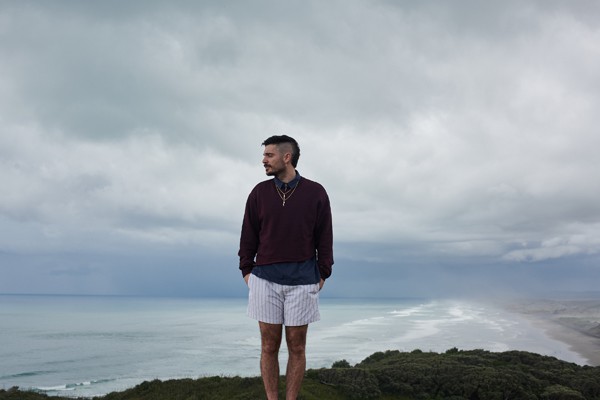
CDM: In 'Stupid Deep' you sing, "'Cause the hole inside my heart is stupid deep, stupid deep," which reminds me of the line in 'Fashion' when you say, "There's an aching, there's a hole in my chest." Was that a purposeful easter egg?
JON: Definitely. I'm 28 years old now and I look back at these albums and they do sound different from one album to the next, but really, when you pay attention to the songs, there's a really common thread throughout a lot of stuff. And it's, 'Yes, money is coming in, but I'm still feeling depressed. I'm still feeling anxious. Yes, I still feel empty and I still feel like once I got one thing I need ten more of it. Once I got my first record, I needed ten more. That's dangerous because once I get ten maybe I'll need a hundred.' There is this theme of humanity that I'm trying to remain honest with, and after a while, you have to start to figure out how can you really change those things and work on those things. 'Stupid Deep' is like the finale of 'Ungrateful Eyes' or 'Fashion', and is kind of the broadest, 'Wow, I need to start finding my worth in other things because the hole inside my heart is still very deep.'
CDM: What was running through your mind when you came up with the line, “What if all I hoped to be was always me?”
JON: What if I'm allowed to like myself as much as I do? What if I don't want to do X/Y/Z? Those questions are always amazing to me, because they say you can't escape destiny, but you also have to make the decisions too and use it on your own work. So if I always believe that I was loved, or if I was amazing, would I act the same way that I did to get me to this point? I don't know... It's confusing, like, 'What if I always just liked myself?' Would I need 10,000 people in a New York room to put up their hands and give me praise if I loved myself that much? Maybe artists just have the deepest hole in our heart because we need the most accolades and attention.
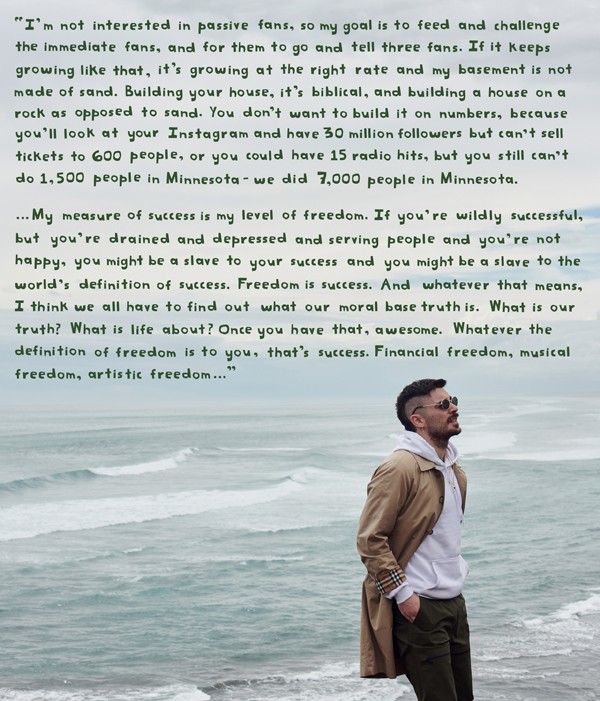
CDM: It's tough. We're taught we should always be growing, which is definitely important, but it also makes you feel like you aren't enough at the time you currently are--
JON: Ever. And we live in a society of production. What have you produced? What have you done? What is your resumé? Even right now, I have this vision of myself in five years of what I want to accomplish. I always have this lie, 'I'll be able to breathe and relax,' but I've been telling myself that every year since I was twelve. You know what I'm saying? So maybe it's time to start caring about ourselves internally. Maybe it's time to start approving of ourselves in the present, and not what a 'like', or the rectangle that we look at-- If you were an alien looking at this, <gestures to iPhone> this is now a piece of our body.
CDM: I saw that Levis and Google made denim jackets which let you control your phone using a touch-pad built into the sleeve of the jacket.
JON: Mark my words, right now, the Apple Watch is the closest thing for it to be within us. I give it five years before they are actually able to make it a part of us. And that goes into a whole other conversation but it's scary...
CDM: I was talking to an artist, and they were saying how humans neurologically haven't changed but technology is actually really damaging to our bodies. That it's advancing at a rate which is faster than we're developing.
JON: Exactly, just like when they came out with cigarettes and they were saying, 'If after taking care of your kids, you want to relax, have a cigarette.' In the 1960s, they promoted them to calm your brain, and then it came out, 'Wow these are really terrible for you.' We will be labeled as the Social Media X Generation where we have to deal with the repercussions of mental health and stuff from understanding that we're the guinea pigs of all of this comparison craziness. It's like amplification of the flesh; it's the amplification of pride times a bajillion, very, very fast.
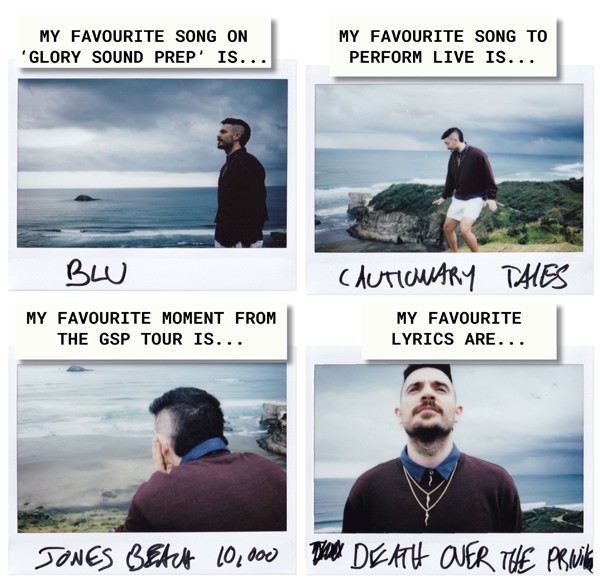
CDM: Originally 'Stupid Deep' was gonna be called 'The Realization'. Was that like a 'eureka' moment when that song came to life?
JON: Yeah, you can tell even from the behind-the-scenes when you watch it and I write in front of me, 'What if who I hoped to be was always me?', and I'm staring at it. Originally 'Stupid Deep' was going to have all these drums, but then it was like, 'I want to get rid of the drums and make it jarring and make it push people.' When I saw all the fears that I had and everything that I wrote down and looked at it, it was almost like a message to myself that found its way out of me, that once you look at it, you're like, 'Why did I even write that?' And you start to really look at the words and you're like, 'Oh my gosh, I need to like myself a lot more.' So yeah, it was going to be called 'The Realization', and I think ‘Stupid Deep’ was a verse, and then at the tail end of the verses I just kept saying "stupid deep". So I thought, it probably just makes more sense.
CDM: What's it like to perform that cracking voice in the final vocal line live? It's such a vulnerable moment.
JON: Yes. 100% I've actually realised after ten shows that I can't do that every night because I started blowing my voice up. So it's a very soft falsetto that kind of just reaches that note, that kind of just rubs it the right way. But we've actually redone the entire song to be more of a rework, so it's very different than the original and kind of gives me liberty.
CDM: You’ve spoken before about always pushing yourself with each project that you do (and in ‘Let’s Begin’ you say, “Was never focused on gettin' bigger, just gettin' better”). Why do you think that bettering yourself - for you in music, or for people in their own individual careers - is such an important ongoing part of life?
JON: When you start to form goals in your mind, you have to become better at other things that you might not be that great at. I think that's why for a lot of the acoustics on this album, I pushed myself to do one-take acoustics; not edited, and really just putting myself out there and making myself uncomfortable to a degree with challenging myself with things I wouldn't normally do. But if you pay attention to the acoustics, it's a full-blown choir with a string section and just my vocal, and if I don't sing well, in that one take, it kind of is what it is. So pushing myself to be just a better singer, a better musician, and caring more about chords - because I came up as a beat-guy. I don't want to be stuck in a loop of the same, and that's not to say I'll never make beats again, but I just don't want to get caught in 'bedroom production beats'. If you listen to 'Glory Sound Prep' and a song like 'Blu', listen to the chord progressions and the 'Sgt. Pepper's' horn arrangement that comes in on the bridge - that entire musical journey is something that's very, very beyond the last album that I did. I just want to push myself in directions that will separate me from people that you might even begin to compare me to - I'd rather take another turn again, that puts me out here.
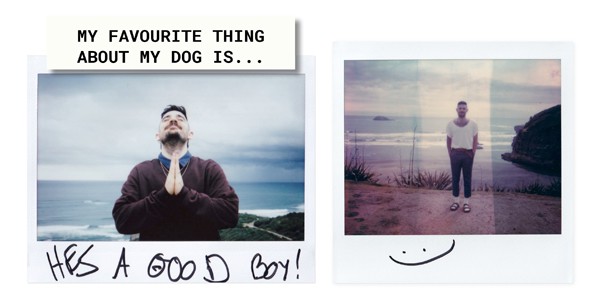
CDM: Music journalism is also particularly guilty of lazy comparisons - it's easy to just compare artists because that's a short-cut way to describe them, but it also devalues an artist's self-worth and creative integrity.
JON: Yeah, there's fans of mine that intend well and feel like they're sticking up for me, but there's no reason for them to constantly berate other artists. I would hope that my fans never did that with other artists - artists need to find their way in their journey. When I first started I was a Timbaland rip-off, I was making beats that were like downgraded versions of Timbaland and Pharrell because that was my inspiration. It is scary to get into the comparison thing. I think of it as a basketball game. At the end of the day your wins or losses don't necessarily define you, but you have to push yourself to rise above relative competition.
CDM: It's cool to hear your sister's vocals in your music - it adds something super familial to it. Even with your collaborators like Travis Mendes, and the rest of the GSP crew, you feel like one big family. Do you feel most at home making music when you're with those people?
JON: Yeah, they've been with me, and they believed in me when no one even came to the shows, so it just makes sense to have them with me on a journey. And that's not to say that they're going to be on every album, but I'm with them, I'm hanging out with them, and so a lot of times, creatively, something will end up happening. The same thing goes with my sister. It's like, 'Hey, I made a song called 'Stupid Deep', do you wanna come to the studio and listen to it?' And she comes in and then it's like, 'Oh, maybe you should put this down.' And it sounds amazing and her tone is so pure. I definitely want to put together an EP for her. She's a nurse, she works at a hospital; she has a normal job, but she has enough fans at this point to put out a little something for people to appreciate. Her tone is just so angelic and pure. It's such a fun thing to record and to work on. I would love to put together something for her, for sure.

CDM: My favourite quote of yours from your interview for Genius' For The Record is: "They're handing out plaques like it's candy on Halloween." With streaming making it so much easier for any musician to achieve plaque-status or become a 'streaming sensation', do you think it's harder for 'success' to be felt?
JON: Yes. 1000%, but even with the way Billboard is set up and the music industry is set up right now, you better hope that if you hang those plaques up... They might be there and the numbers might be there because people click on it because it's attached to your campaign or whatever, but at some point you're going to have to go on the road, and at some point, two years are going to go by and that song is not going to be relevant anymore. To me, the true proof is how many butts are actually in the seats, but that's not really great clickbait or a headline or anything. I did - and again, this is not a pounding-of-the-chest thing - 10,000 people in Jones Beach in New York and I don't think anything went Platinum off 'Glory Sound Prep', but there were 10,000 people there. So I have to start to be able to utilise the technology of the internet to feed many people, but there's also a layer of fans that I've realised don't really care, they wouldn't have bought something and they wouldn't come to a show anyway. So why would I placate to get more of that type of thing?
CDM: They're like passive fans--
JON: 100%. I'm not interested in passive fans, so my goal is to feed and challenge the immediate fans, and for them to go and tell three fans. If it keeps growing like that, it's growing at the right rate and my basement is not made of sand. Building your house, it's biblical, and building a house on a rock as opposed to sand. You don't want to build it on numbers, because you'll look at your Instagram and have 30 million followers but can't sell tickets to 600 people, or you could have 15 radio hits, but you still can't do 1,500 people in Minnesota - we did 7,000 people in Minnesota. So it started to hit me, you can refer to the Dave Matthews Band, or the Grateful Dead, or Jon Bellion, or Billy Joel as irrelevant. But in the real world, they're actually more relevant than your favourite artists who seem relevant. But I also realise it's twelve to fifteen-year-old kids who are just hungry to make comments, and write things and say things. A lot of opinions you're seeing are people that don't even have their face as their profile picture.

CDM: We've spoken a bit about it before, but what to you, is your measure of success? Do you think it's important to not view success and happiness as the same thing?
JON: My measure of success is my level of freedom. If you're wildly successful, but you're drained and depressed and serving people and you're not happy, you might be a slave to your success and you might be a slave to the world's definition of success. Freedom is success. And whatever that means, I think we all have to find out what our moral base truth is. What is our truth? What is life about? Once you have that, awesome. Whatever the definition of freedom is to you, that's success. Financial freedom, musical freedom, artistic freedom...
CDM: Which of the freedoms is most important to you?
JON: Freedom with my time; me choosing what I get to do with my time is my success. Me saying, 'I want to take two years off to go live in Hawaii to work on my diet and not work and just spend time with my family and whatever,' that's freedom to me.
CDM: You sing in ‘The Internet’, "How can we change this?" So I wanted to know, how do you think we can change the world we live in?
JON: At the beginning of my career, I used to think I wasn't making an impact unless seven million people were affected immediately. But you start to realise that you could instead have a personal conversation with one person and change their life for the better, and feed them as opposed to entertaining them. I think that would be a good place to start. I think we might have misconstrued ideas on what even change is, and what even activism is, like real world grassroots activism. I also feel myself becoming more disconnected with relevancy as far as technology and social media and things like that. So to that degree, some people would call that 'me not using my platform'.
CDM: Around the election when Trump got elected, every musician on Twitter that I follow was like, 'Go vote; vote democrat!', but the end result wasn't what we all wanted. Obviously, using your social platform is good, but if it doesn't feel like your voice is creating real-world change, it can feel discouraging?
JON: And to what degree? To what degree does social work or charity make you even look great? I mean, would we all be doing as much social work with our platforms if it didn't add to our public view and how people think that we're such great people?
CDM: That's the thing, people do charity when it's visible.
JON: Exactly. But then there's also another sense of pride that says, 'I don't do my charity in public, which makes me better than the people who do jack.' There's so many deep levels. I guess, just try to do the best you can in the real world, even though change isn't affecting people personally. This might sound weird, but the kingdom is in people.
CDM: I feel like conversation has more power, like one-on-one talking to someone.
JON: Oh my gosh, of course. Plus, we only have 280 characters to put out an opinion that someone else also has 280 characters to put out the same. It's like, 'What's going to get solved?' I don't know.
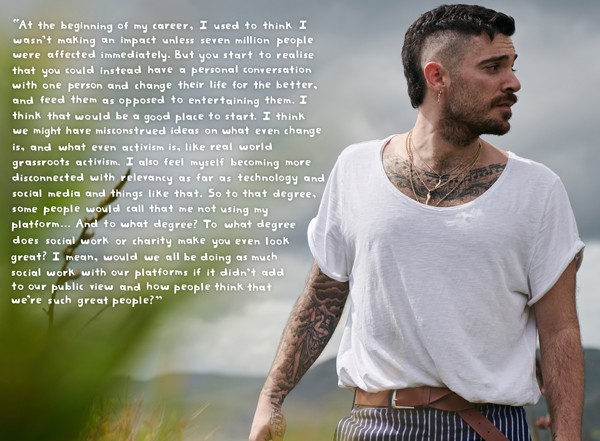
CDM: For your sanity, you've said you have to remain passionate about every part of your music. Are there certain things about making music and playing shows, that you're passionate about? Or is it the whole process?
JON: I think it's just waiting for something to hit me that says, 'This is exciting me and now I want to go; I want to go open that package up.'
CDM: Do you know when that's going to happen, or is it fully random?
JON: I don't. Even at this point. I'm still really in love with rap right now, like really in love with Dilla Boom Bap, like early 90s kick-snare conversation rap right now, and that's something that maybe excites me to the level that I want to put out an EP or something like that. I'm still waiting for that sledgehammer to drop on my head for the next body of work, whatever that might be.
CDM: That's exciting, it could be anything!
JON: And then making an album that's given me now the buffer to do whatever I want, and to take as much time as I want, because I've proven that I can. Freedom like that makes me even happier and even calmer. I don't feel this looming sense of, 'Feed and feed and feed.'
CDM: The world of 'Glory Sound Prep' that you set up in the trailer that Stormzy narrated is really incredible. Have you already planned the narrative of that series? Is it based on the album or is it a separate story?
JON: There will be shades of the album for Easter egg purposes throughout the series. Here's a short synopsis: There's a boy named Mylon and he's from Brooklyn, he sees music differently; he has synesthesia and he doesn't understand why he's different. Through a chain of events, he gets swept up to a planet called Opus, where there's musical energy and that's how the planet is run. So if you play guitar, somebody might be able to drive a boat, because music runs the planet. That's how the animals talk to each other. It's everything. It's all musical energy. You get swept up and it gets brought to this school called 'Glory Sound Prep'. Basically, the legend in the world says that if you find the sound called the 'glory sound', you become all-powerful. It's kind of like a hunt for the ring or the Dragon Ball. So he gets swept up into this chase to find it, racing against people who want it for evil purposes, and he goes to all the nations and finds different pieces of this 'glory sound' song that he ends up playing to make him all powerful.
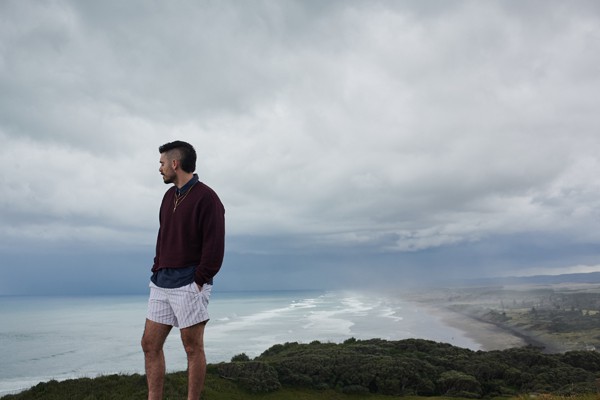
CDM: Did you come up with that storyline after creating the album?
JON: All during the album. One of my best friends from high school, his name is Dan Cancro, he's a super talented screenplay writer, and we kind of just put our heads together and formed a company called Keyro. We brought in a bunch of animators and they're crushing it; we're putting together the pilot as we speak. The trailer was actually just beta, which is why when they're walking you kind of see it as more robotic, and there's not a lot of detail in the walls of the school and whatever. It was the introduction of the idea in general.
CDM: It's also such a smart way to track progress through your fans and for the tour to help the show get funding as you kind of talked about with Forbes. How is progress going with that?
JON: It's been going incredible. I don't know if this is a flex that I should say or not, but tickets and every single merch piece had a code on it, and then that logged in how much we made toward the concept of 'Glory Sound Prep' from merch purchased, and then we used the tour as a giant promo run. I introduced all of the fans that were there, which at this point was a total of 150,000 people, to the concept - we announced and described to them at the end of the show what we're working on. So I've really used the 'Glory Sound Prep' tour as just a giant press run to get people ready for this.
CDM: All the film references in 'Adult Swim' are really cool to hear ("Like Alfred Hitchcock with a camera" and "My baby's drivin' / I'm Ansel"). 'Baby Driver' is such a good movie!
JON: That flew over so many people's head. Like Ansel Elgort, that's great that you caught that.
CDM: Do you still want to do scoring for films? Do you think they would be films you have been involved in, or other people’s creative projects too?
JON: It's funny, Pixar and Disney, and anybody I've taken meetings with really, I've learned that you have to put together a resumé. Right now I'm trying to put together a resumé because the goal is not to get my music in a movie, but I'm actually trying to score the music for a film and I'm realising that it's a very nepotistic and political industry to get into. So at this point, I'm really just trying to do as much film and TV work undercover as I can to build a resumé to finally get the opportunity for a company like Pixar to invest their money in me bringing in hundreds of music players to be in charge of that. It's guys like Jon Batiste that are helping me out a lot - he leads the band for Stephen Colbert and he's one of my favourite musicians ever. We actually just started hanging out and I'm realising I can learn so much from him. He's the other end of the musical spectrum, like chordally and mathematically and just from a player's perspective, he's an absolute avant-garde, so I feel like we're gonna be able to learn a lot from each other.
CDM: Scoring as well, I feel like it probably takes on a whole different vibe because you're working on something which already has visuals and a story.
JON: 100%. And there's time frames, and I've also realised that I'm going to have to put together my own series because I realised when you work with directors, you're really just working for the director, which is fine and I want to do that. Yeah, mould me, shape me, whatever your vision is, it's my responsibility to bring that to life. Which is why I started the series also, because I want to have creative freedom within a visual medium. So that's how the idea to do 'Glory Sound Prep' was birthed.

CDM: What was your experience like working on 'Dragon Ball Super: Broly'?
JON: Insane. That's like my all-time favourite cartoon, so to be in it - and I think they were saying that was one of most successful movies that they put out ever across the board - and to be a part of Dragon Ball history and to be cemented in that, to show my kids when they watch it and stuff, it's going to be cool.
CDM: How did you find voice acting as opposed to recording music?
JON: Nerve-racking. It's totally different. It's scary. They made me do it a bajillion times. I'm just happy it made it into the movie.
CDM: It's been crazy to see so much of your co-writing and production rise on the Billboard Charts, which you've been doing as well as releasing 'Glory Sound Prep' and touring the album. Do you find that each of these slightly different parts of working in music fulfil different creative outlets for you?
JON: 100%. I used to think that hit records were all bad, and that it's a bad thing and you don't want to be on the radio. But I've realised that that's a 10,000 hour job in and of itself because it's so hard. It's so hard to make a hit record. <laughs> Being able to jump into both fields and having the freedom within my own artistry to kind of be as indulgent as I want, and then be able to deliver for these majors... These major companies are looking for songs with passive listeners that will connect with every skin colour, every weight, every age, and they want people to like that song. That's a talent in and of itself. And that can be inspiring, but it's also something you have to develop. I don't know the stats, but there's many songs that are working right now on the radio. I think the Maroon Five record ['Memories'] is gonna go top five, and Halsey [with 'Graveyard'] is gonna break the top ten, which is really, really nuts. Not to get like, 'Told you so,' but I feel like it just makes 'Glory Sound Prep' make even more sense because I'm proving myself that I can do that if I want to do that. It's just that there's a different purpose for my own stuff. I think now that it's been one year since the album, and there's been five records in the top whatever, it kind of makes what I'm saying be even more truthful. And what proved that? Time. Which is the entire concept.
CDM: When you're working on songwriting for other artists, do you go in with a different approach in terms of how you want to work compared to your own music?
JON: Yeah, there's always a litmus test. With me, I might do an eight minute song called 'Mah's Joint' with three different songs going; I'm liable to do that. But with an artist, I really just want to listen to their vision. I think I operate best when an artist brings to me what they envision themselves sounding like at the end of the race, and it's just my job to kind of put together the car and drive them there and get them to where they're going. At this point, it's a mixture of the two things. I don't think anybody would bring in a writer unless they were one of two things, trying to make an enormous record that was beyond their capabilities because they need to collaborate with people. Like an iPhone, Steve Jobs didn't just have himself, he had a lot of people around him, and we are trying to make iPhones at a high level with artists like Camila [Cabello], Halsey, Maroon 5, Shawn [Mendes], Rihanna, or whoever, and then also open this creatively to a new thing. So it's my job to walk in the room and just be like, 'Where's your finish line? And how can we get there?' And that's what the Pharrell's do, that's what the Quincy Jones's do, that what the Hans Zimmer's do, and those are the guys I'm trying to model myself after.

CDM: Is there anything in particular that draws you to certain artists to work with?
JON: Not particularly. In the beginning of my career I was very, 'I would never work with Artist X'. The older that I get, the more I realise it's all subjective, and my opinion is not the end opinion. Who am I to say that I couldn't make something amazing with an artist that might not be something I listen to regularly? I'm also just blessed to have work. I don't want to go back to the catering hall, so I start to wake up grateful that Artist X wants to work with me instead of being a snob and being like, 'That's not on my artistic whatever.' There is no 'artistic' whatever, because it's all subjective.
CDM: We're big Halsey fans, and it was cute that she said she was a big fan of yours too. What was it like working on 'Graveyard' with her? Is there anything specific you remember about the creation of that song?
JON: She's incredible. The song was borderline finished; there was an idea there. But once she got her hands on it, she really showed how much of an actual artist she is. It has to be her story and it has to relate to her. She came in and reworked every line, poetically too, and did such a sick job from my demo to her finished product. An artist came in and did what an artist was supposed to do. And as an artist at her level to be operating that much and still be involved so deeply on the lyric changes, that showed to me that she deserves every piece of what she has.
CDM: The gasps and claps in that song add so much texture to it.
JON: That was not in our version with the people that I worked with, so she really proved to me how much of a true artist she is.
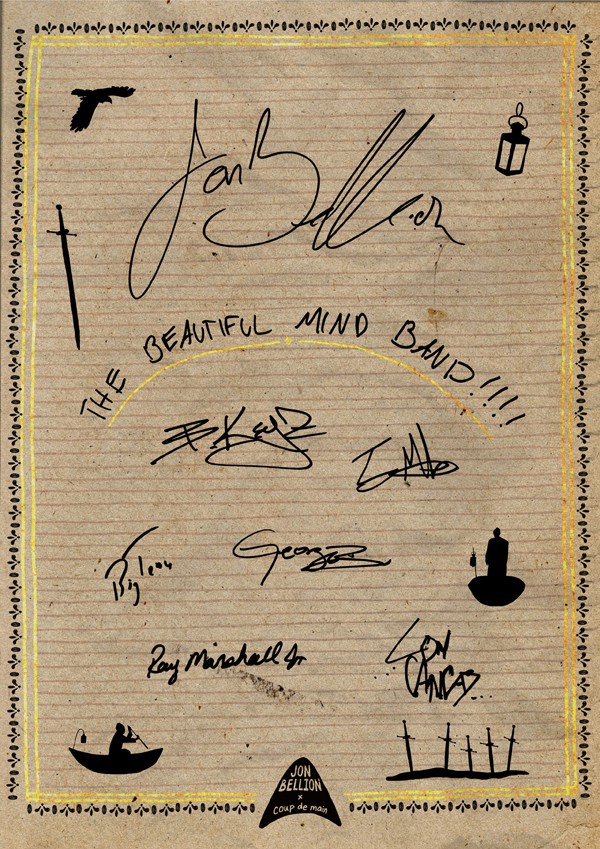
PHOTOGRAPHY BY KAREN ISHIGURO
GROOMING BY KANE PAKE
Jon Bellion's album 'Glory Sound Prep' is out now - watch a live performance of 'Stupid Deep' below...


 Jon Bellion
Jon Bellion